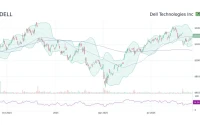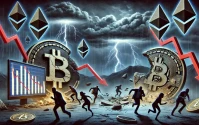They call it "Plasma." I call it the most confusing word of 2025.
Seriously, can we just retire the word? It’s done. It’s had a good run, but now it’s just a linguistic black hole that sucks in every half-baked idea from science fiction dreams to crypto scams. I spent the last week digging into "plasma," and I feel like my brain has been put through a blender. One minute it’s the key to unlimited clean energy, the next it’s a meme coin, and the next it’s a bodily fluid that a faulty machine might fail to warm, killing you in the process.
This ain't a word anymore. It’s a symptom of a society that can’t focus on one thing for more than five seconds.
When "Future Tech" Actually Feels Like the Future
The Star Trek Future We Were Promised
Let's start with the "good" plasma. The one that sounds like it was ripped from a Gene Roddenberry script. Down at a company called Zap Energy, they have a machine called "Century." It’s about the size of a water heater, and inside, they’re creating lightning bolts 20 times stronger than actual lightning. They're zapping hydrogen gas into a superheated state of matter—plasma—and containing it not with giant magnets, but with its own magnetic field in something they call a "sheared-flow-stabilized Z-pinch."
They're firing this thing every five seconds, for hours, dumping the heat into a wall of flowing liquid bismuth. Bismuth! The stuff in Pepto-Bismol. They're talking about solving the engineering problems of fusion, about building a real power plant. It’s incredible, complicated, and genuinely feels like the future. They're talking about 'sheared-flow-stabilized Z-pinch fusion modules' and I'm just thinking... this is the kind of stuff that should own the word. The serious, world-changing stuff.
But offcourse, it doesn't. Because we can’t have nice things.
When a Great Idea Becomes a Digital Dumpster Fire
The Crypto Casino We Got Instead
Then you have the other plasma. The one that makes you want to throw your laptop out a window. A "layer-1 network optimized for stablecoin transactions" called Plasma, with its own token, XPL.
While Zap Energy is trying to build a literal star in a bottle, Plasma the crypto network is busy hosting a meme coin called "Trillions." It hit a $60 million market cap based on a viral clip of some venture capitalist saying stablecoins could create "trillions of dollars of demand." That's it. That's the thesis. A meme. And people poured millions into it before it inevitably crashed.
This is just another crypto casino. No, that’s not fair to casinos—at least they have free drinks. This is a digital bonfire for dumb money, fueled by "whale accumulation" and "positive deltas." One whale apparently made $80 million in a few days by pumping the price and liquidating other traders. This isn't building anything. It’s just rich guys playing poker with other people's savings.

Benj Conway, the CEO of the fusion company, said, "Fusion is not just a plasma problem. It's a systems integration problem." My translation for the crypto world: "It’s not just a technology problem, it’s a how-do-we-get-you-to-buy-our-useless-token problem."
It’s exhausting. It’s like trying to have a serious conversation about astrophysics in a room where a toddler is screaming for more candy. I swear, the internet’s ability to turn everything into a speculative bubble is its one true innovation. Remember NFTs? Same energy. Just a different buzzword attached to a mountain of digital receipts for nothing.
The Blood, The Money, and The Lies
And Then, The Blood
Just when you think the word can't get any more schizophrenic, it gets darker. It gets real. Because "plasma" is also in your veins. It’s the yellow, protein-rich liquid that makes up more than half your blood. It’s the stuff that saves lives.
And it’s at the center of two stories that should make you sick.
First, 3M, the company that makes Post-it Notes, has a device called the "Ranger Blood/Fluid Warming System." Its job is to warm blood and plasma for transfusions. Except, whoops, the FDA just issued the most serious type of recall because the machine doesn't actually warm the fluid properly at high flow rates. The risk? Hypothermia. And death. The label promised one thing, the reality was another. So now there are devices in hospitals, right now, that could kill someone because of a "labeling correction."
Then there’s the human side of donating plasma. I read about guys like Peter Johnson and Mike Horgan in Canada. They go in every single week, for free, to donate their plasma because they believe in helping people. They sit there for hours, hooked up to a machine, giving away a part of themselves.
What they didn't know is that Canadian Blood Services has a deal with a Spanish pharmaceutical giant called Grifols. Grifols pays people for plasma at its own clinics, and it also takes the byproducts from the unpaid donations and manufactures drugs like albumin to sell for profit internationally. The donors, the ones doing it for altruism, had no idea. They thought they were helping Canadians. Turns out, they were also helping Grifols's bottom line.
How are we supposed to process this? The same word connects a fusion reactor, a meme coin that crashed from a $60 million valuation, a faulty medical device that can kill you, and a blood donation system that feels like it's exploiting people's goodwill.
Maybe I'm the crazy one here. Maybe I'm just yelling at the dictionary. But it feels like the word itself has become a perfect metaphor for our entire culture: a chaotic, contradictory mess of profound potential, breathtaking greed, and lethal incompetence, all packaged under the same bland, corporate-approved name.
So, This Is Progress?
In the end, it’s not about the word. It's about what we've allowed it to become. "Plasma" is the future of energy. "Plasma" is a worthless token. "Plasma" is the fluid of life. "Plasma" is a corporate liability. It means everything and nothing all at once. It’s the perfect, meaningless brand for an age where nothing has any fixed value anymore—not science, not money, and certainly not the blood in your own veins.
Reference article source:









